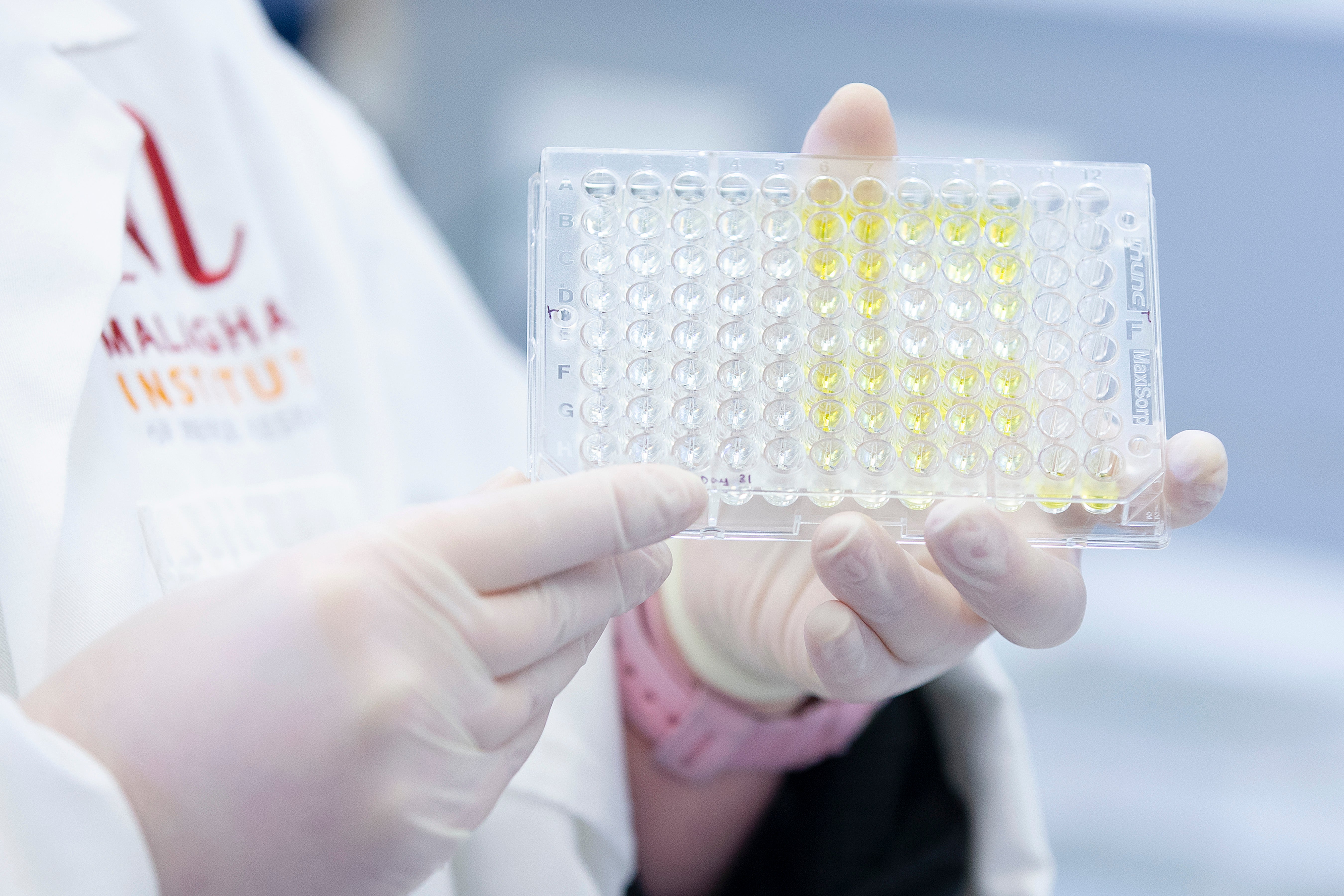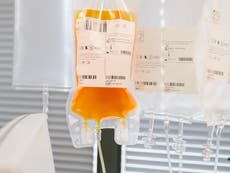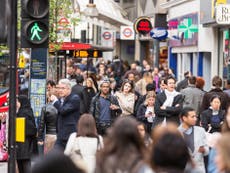Covid antibodies decline rapidly one month after leaving hospital, study suggests
One in five patients’ antibody responses unable to stop virus entering cells, researchers find

Your support helps us to tell the story
From reproductive rights to climate change to Big Tech, The Independent is on the ground when the story is developing. Whether it's investigating the financials of Elon Musk's pro-Trump PAC or producing our latest documentary, 'The A Word', which shines a light on the American women fighting for reproductive rights, we know how important it is to parse out the facts from the messaging.
At such a critical moment in US history, we need reporters on the ground. Your donation allows us to keep sending journalists to speak to both sides of the story.
The Independent is trusted by Americans across the entire political spectrum. And unlike many other quality news outlets, we choose not to lock Americans out of our reporting and analysis with paywalls. We believe quality journalism should be available to everyone, paid for by those who can afford it.
Your support makes all the difference.Coronavirus antibodies “significantly decline” in the month after patients are discharged from hospital, a new study suggests.
More than 80 per cent of recovered Covid-19 patients have varying levels of antibodies, but only a small portion created a “potent” response to the virus if reintroduced to it, researchers found.
Scientists from Nanjing University Medical School in China monitored antibody responses in 19 non-severe and seven severe Covid-19 patients for seven weeks from the onset of their disease.
They found that one in five patients did not have antibodies capable of fighting the virus upon being discharged from hospital. Furthermore, antibody levels in patients declined significantly between three and four weeks later.
A better understanding of antibody responses against coronavirus will provide fundamental information for developing effective treatments and a vaccine, the authors said.
It remains questionable whether recovered patients might be susceptible re-infection, they added.
The study also highlights the importance of carefully selecting blood samples from recovered patients using antibody neutralisation assays prior to transfusion into other Covid-19 patients, the researchers said.
It follows research at King’s College London which found that, while 60 per cent of infected people displayed an effective level of antibodies in the two weeks around the first sign of symptoms, this dropped to less than 17 per cent after three months.
Professor Danny Altmann, British Society for Immunology spokesperson, said it remained unclear to what extent the research spelled bad news.
"Studies like this are a vital part of the 'work-in-progress' to make sense of who has immunity and how long for,” said Prof Altmann, of Imperial College London.
He added: "Once again, evidence shows that the half-life of these antibodies in the blood is not particularly sustained.
"We don't know to what extent this is bad news unless we know the extent to which the white blood cells that make the antibody (B cells) are up and ready to defend against any repeat attack."
Dr Alexander Edwards, of the University of Reading, added that he did not view the study as a “game changer”.
“It certainly adds more data to existing studies, but nothing dramatically new pops out,” Dr Edwards said. “The study illustrates that there are multiple antibody measures and that these will change over time.
“We wouldn’t expect antibody levels to remain high all the time, but the antibody ‘memory’ would mean that although levels might be low, there may be some level of protection. This paper doesn’t really answer that question.”
The study should be a reminder that antibody testing is far from perfect, Dr Edwards said, as “people won’t necessarily have the same levels of antibodies that know how to target and defeat different proteins such as the spike in the coronavirus”.
He added: “Individual tests still can’t tell us for certain how immune a person is against Covid-19, and only with longer, larger studies will we be able to answer the big questions like how antibody levels affect severity and reinfection."
He reiterated that the study did not give any clearer indication as to whether having a lower level of antibodies leaves patients open to re-infection.
“The study is not able to or designed to correlate any particular antibody measurement with protection from re-infection or with disease severity,“ he said: “The remaining unanswered question is still: how do these fluctuations in antibody levels affect both Covid-19 severity, and the chances of catching the same infection a second time.”
Additional reporting by Press Association



Join our commenting forum
Join thought-provoking conversations, follow other Independent readers and see their replies
Comments